Alcohol, Medications, and Drugs: Driving Under the Influence
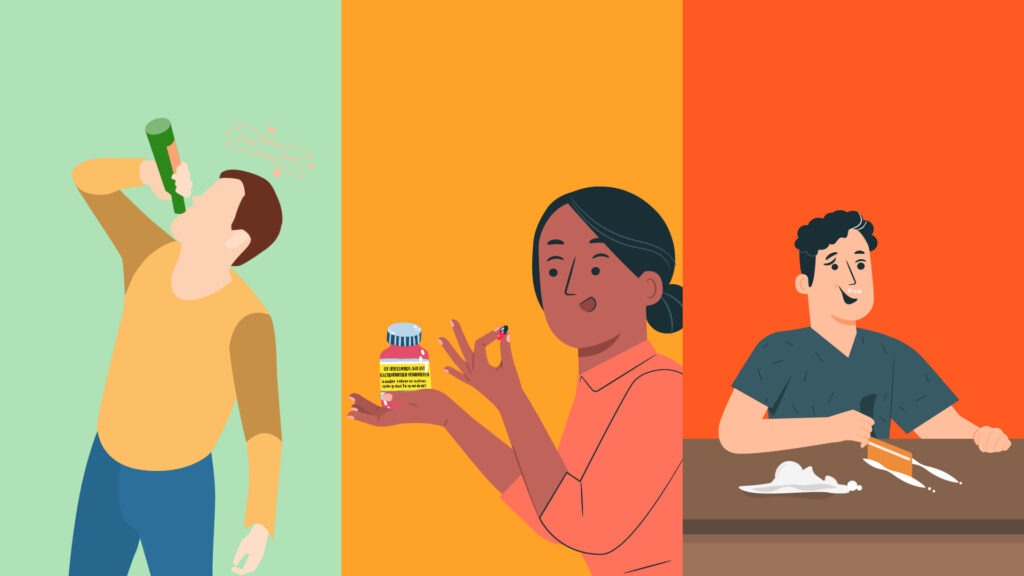
In this text, we delve deeper into the complex relationship between alcohol, medications, drugs and driving. From legal limits to the effects on your body and the consequences of traffic stops, we explore everything you need to know to stay safe behind the wheel.
What are the rules about alcohol and driving?
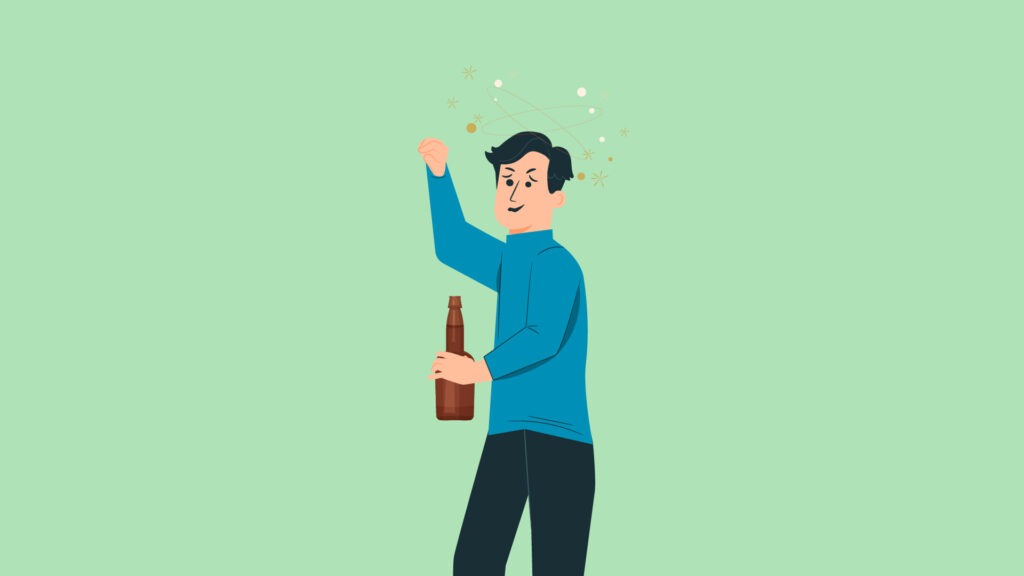
Blood alcohol limits:
If you have just got your driver’s license, you may have a maximum of 0.2 per mil alcohol in your blood. If you are more experienced, the limit is 0.5 per mil.
Limits for alcohol in your breath:
Please note! This can also be asked based on the alcohol content in the breath. For novice drivers it is a maximum of 88 micrograms/liter, while for experienced drivers it may be a maximum of 220 micrograms/liter.
When are you a beginner and when are you an experienced driver?
How long you are a novice driver depends on when you get your license: if you pass at 17, you are a novice for 7 years. If you pass at 18 or older, you are a novice for 5 years. This is important to know because novice and experienced drivers have different rules regarding alcohol.
Facts about alcohol:
Each standard glass of alcohol contains approximately 12 milliliters of pure alcohol, which gives an average blood alcohol level of 0.2 to 0.3.
The effect of alcohol varies per person and is stronger in:
- Small, light people
- People who drink little
- Drink on an empty stomach
The body breaks down alcohol at a rate of approximately 0.1 to 0.2 per mil per hour. This means that it takes approximately 1.5 hours for 1 glass of alcohol to be broken down. Fresh air, coffee, or sleeping do not help with this.
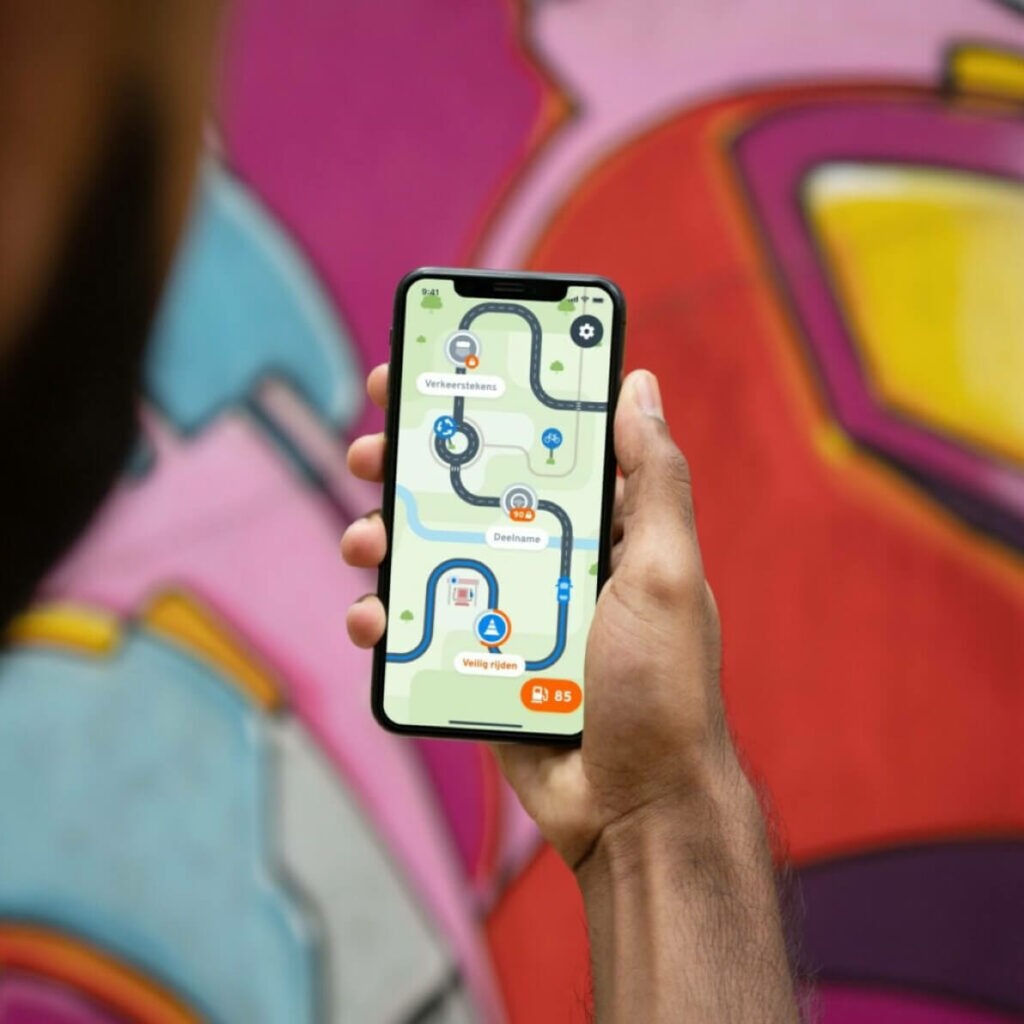
Take one of our courses
Pass first time with our impressive 97% pass rate. 25,000+ successful candidates. Your driver’s license, your success story, starts here!
What are the rules about medications and driving?
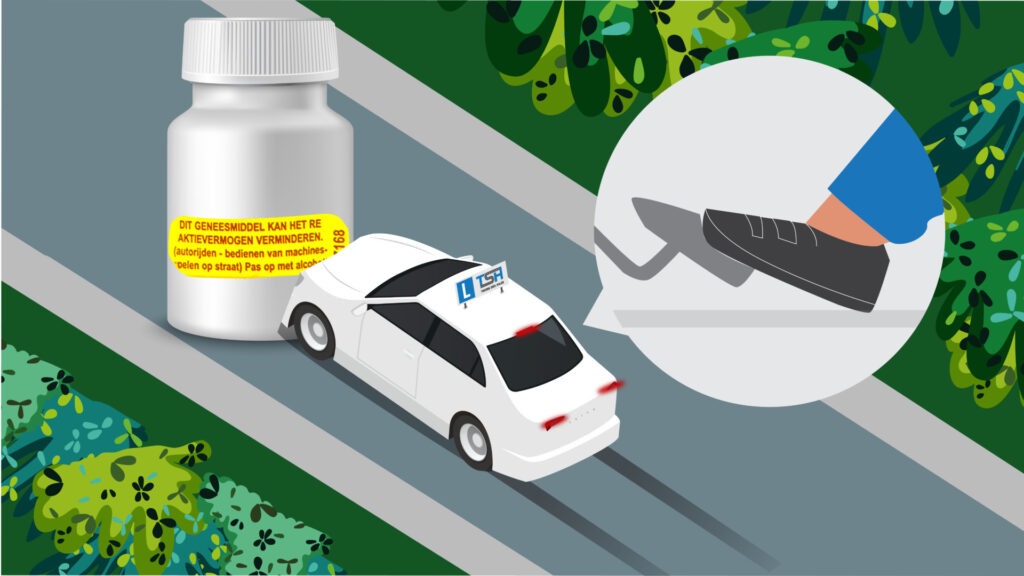
Certain medications can affect your ability to drive, such as tranquilizers, sleeping pills, painkillers and more. These medications are often recognizable by a yellow sticker on the packaging. If in doubt, consult your doctor or pharmacist. Some medications remain in your system for up to 48 hours, so always ask for advice before driving.
What are the rules about drugs and driving?
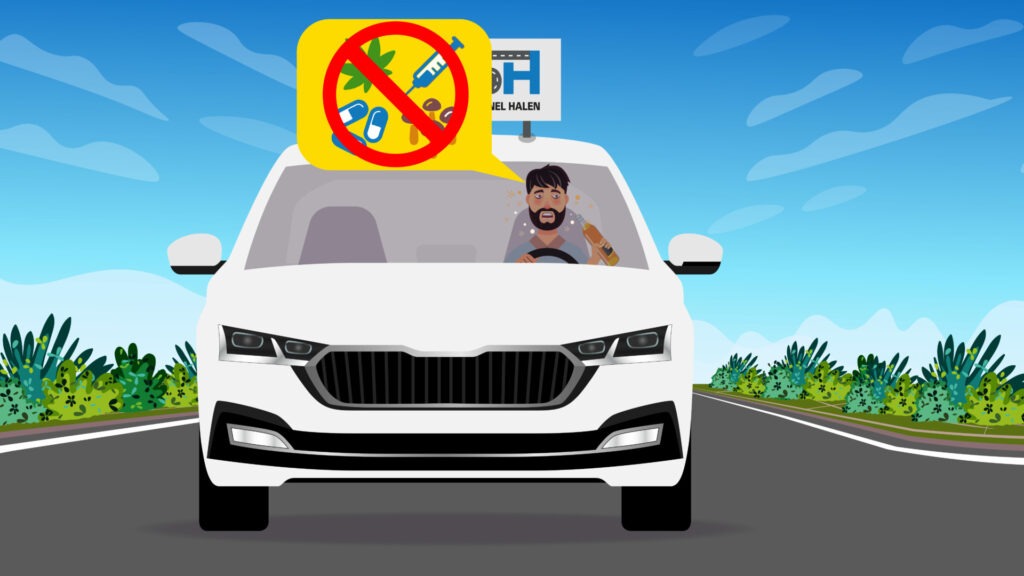
Drugs affect your behavior by acting on your central nervous system. Their effects can be unpredictable and they are detectable in saliva for a long time. Simply put, never drive under the influence of drugs.
Traffic checks while driving:
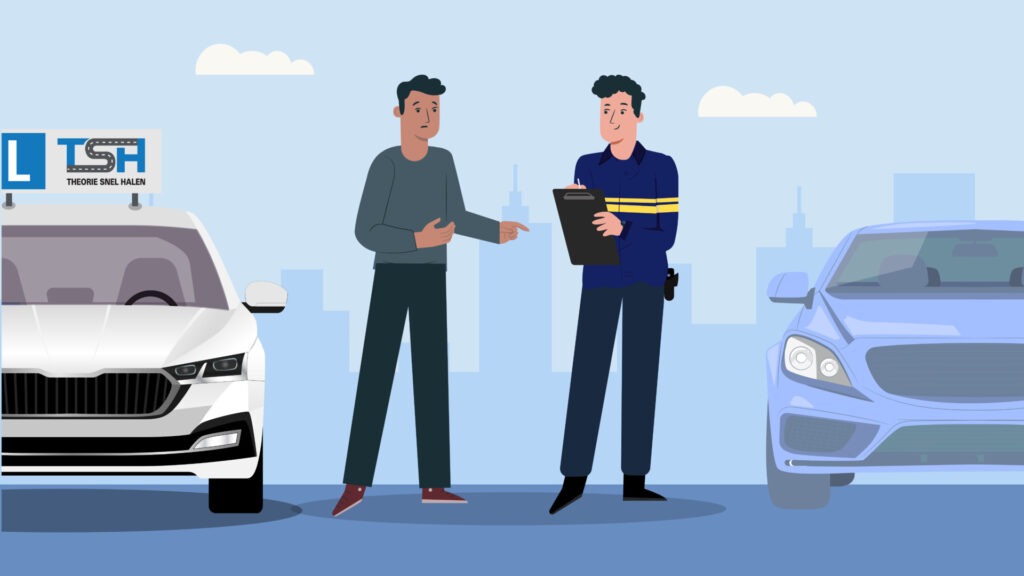
Driving under the influence of alcohol, certain medicines or drugs is a criminal offence. The police will carry out checks using breath or saliva tests. If you test positive, they can carry out further tests at the police station. You must cooperate with these tests. The penalties include fines up to imprisonment and a driving ban of up to 5 years.
